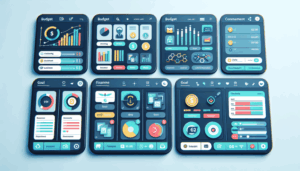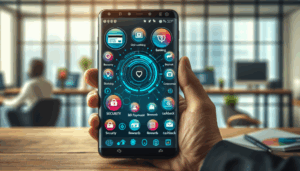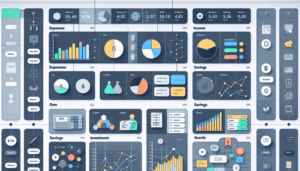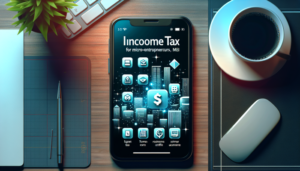A Emergency Reserve is one of the most important tools to guarantee financial security and peace of mind in times of unforeseen events.
Building it requires planning, discipline and consistency - but the benefits are invaluable.
See below the most effective strategies to create a solid and efficient reserve.
1. understand the importance of the emergency reserve
First of all, it is essential to understand the purpose of the emergency reserve.
It is a fund separate from the daily budget, intended to cover unexpected expenses or possibly planned, such as:
-
Loss of employment
-
Car repairs
-
Medical expenses
-
Emergency bills
👉 Having a reservation is the first step to avoid debt and protect your assets in unexpected situations.
2. Calculate How Much You Need
The ideal reserve amount varies according to your financial reality.
The general recommendation is to have the equivalent of three to six months of basic expenses.
➡️ Example:
If your monthly expenses are R$ 3,000, your reserve should be between R$ 9,000 and R$ 18,000.
Make a complete survey of your expenses to determine the ideal amount.
3. set realistic goals
Avoid setting too big goals right from the start - this can demotivate you. smaller objectives, how to save R$ 1,000.
When you reach that mark, gradually increase the target until you reach the total amount you want.
💬 Tip: motivation increases when you tracks small progress.
⚙️ 4. Automate Your Savings
One of the secrets of constancy is automating the saving process.
Configure automatic transfers from your main account to your reserve account as soon as you receive your salary.
So you removes the temptation to spend and turns the act of saving into a automatic habit.
➡️ Example: use the XYZ Bank to automate your monthly transfers.
🔄 5. Review and Adjust When Necessary
Over time, your finances and expenses may change - so, review your booking regularly.
Make adjustments whenever necessary changes in income or cost of living.
📅 Recommendation: review your reservation every six months.
📱 6. Use Tools and Applications to Help
Today, there are several financial control apps that make it easier to build your reserve.
They help monitor savings, planning budgets and even invest safely.
💸 Emergency Reserve: How to Deal with Financial Unforeseen Events
Having a Emergency Reserve is essential for dealing with unforeseen events without resorting to debt.
Here are the best practices to guarantee this financial protection.
💬 What is an Emergency Reserve?
It's a an amount set aside exclusively for financial emergencies, such as:
-
Unexpected illnesses
-
Urgent maintenance
-
Unforeseen family expenses
The aim is to ensuring financial stability even in difficult times.
💡 Why Have an Emergency Reserve?
With a reservation available, you can facing unexpected situations without having to sell assets, take out loans or use a credit card.
It is the basis of personal financial security.
📏 How much to save?
The recommended amount is 3 to 6 months of essential expenses.
For example, if you spend R$ 4,000 per month, your reserve should be between R$ 12,000 and R$ 24,000.
🏁 How to Start Building Your Reserve
-
💰 Save regularly: Even small amounts make a difference over time.
-
🔁 Automate your savings: automatically transfer part of your salary to your reserve.
-
📈 Invest safely: prefer low risk and high liquiditysuch as Selic Treasury, CDB with daily liquidity or fixed income funds.
🧱 Making an Emergency Reserve a Solid Financial Habit
A Emergency Reserve should not be seen as a luxury, but as a financial necessity.
She is buffer that protects you and your family in times of crisis.
🌱 Importance of the Emergency Reserve
Without a reserve, a simple unforeseen event can generate stress, debt and loss of quality of life.
With it, you guarantee tranquility and emotional control in the face of adversity.
🧩 How to Build Your Emergency Reserve
Follow these simple strategies:
-
Set clear goals: define the ideal amount (3 to 6 months of expenses).
-
Save regularly: prioritize your booking every month.
-
Review your spending: identify savings opportunities.
-
Look for extra income: speed up the process with additional earnings.
-
Use financial control apps: as Mint or Mobills.
🔁 Making the Habit Permanent
The best way to keep your reservation is turning saving into a routine.
Do it part of your personal financial culture.
These practices make the process sustainable and automatic, without relying solely on willpower.
🧾 Conclusion: Your Basis for Stability and Financial Freedom
Building a Emergency Reserve is one of the smartest moves for anyone looking for stability, security and financial freedom.
With it, you'll always be prepared for face any unforeseen circumstances without compromising your dreams.
💬 Remember: financial security starts with planning, discipline and consistency.
📱 Recommended tools:






